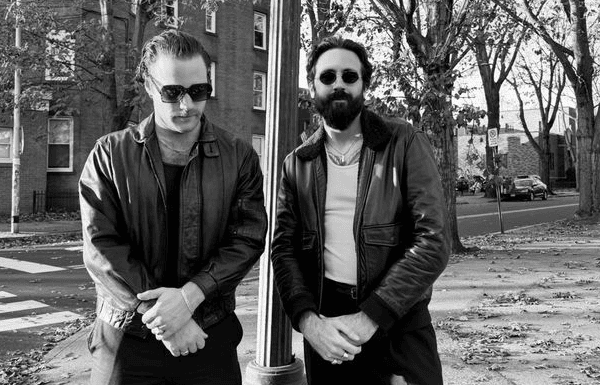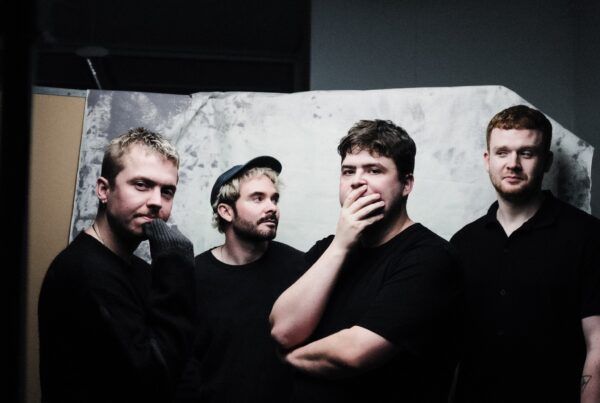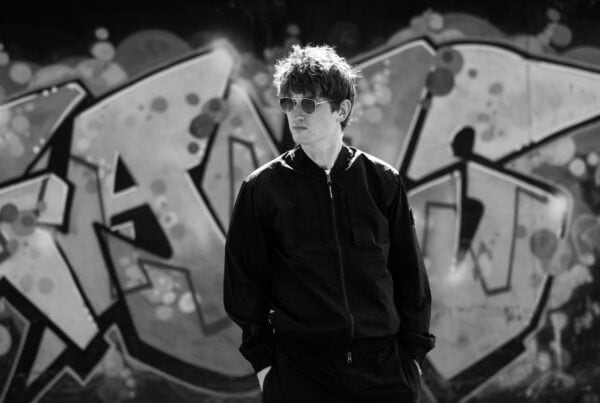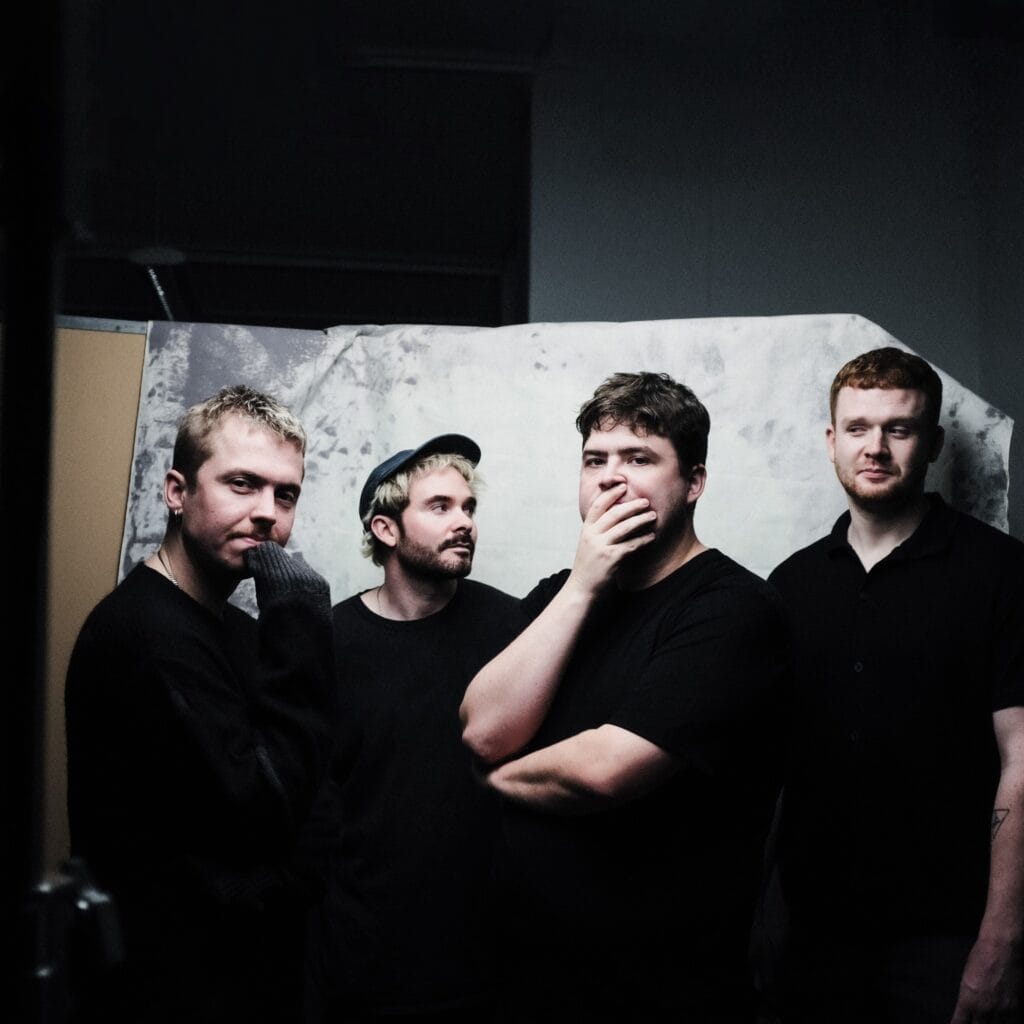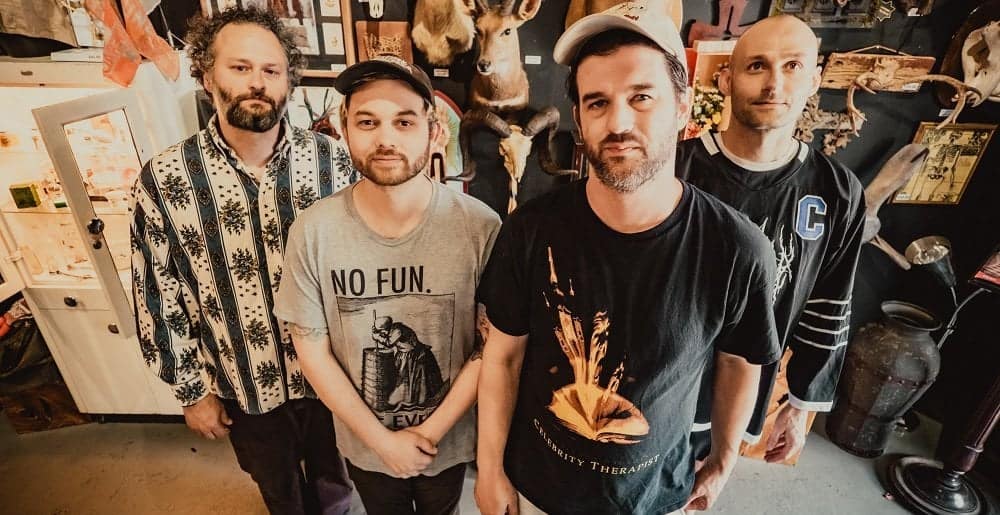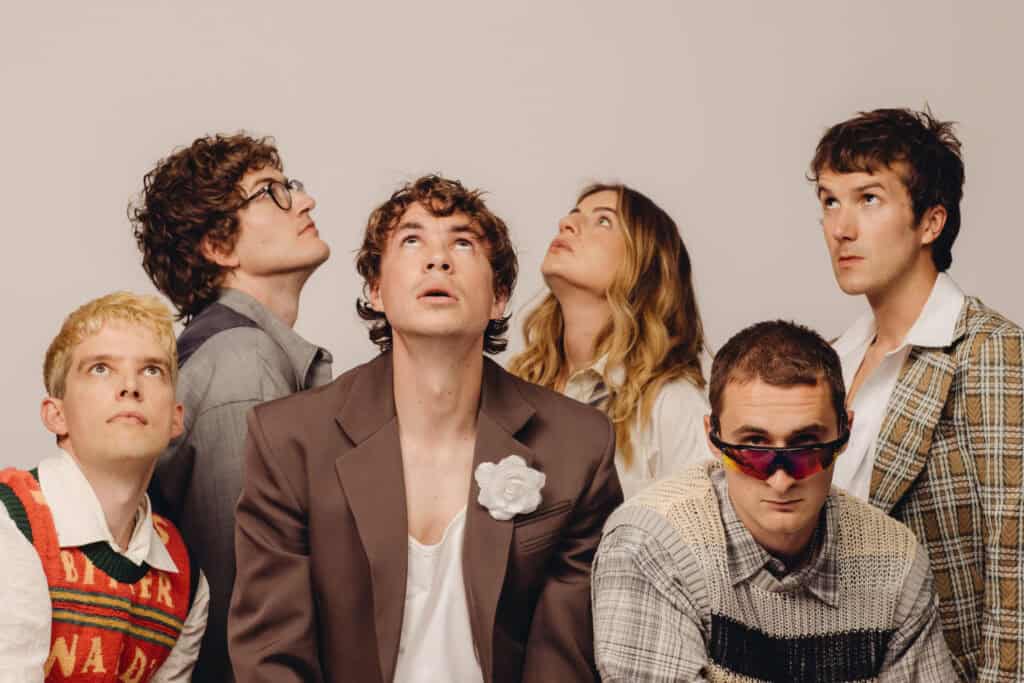Unless you’re very, very lucky to have been blessed with the ultimate supportive environment, it’s safe to say that every person in the LGBTQA+ spectrum has a story about how some kind of formative enforced repression in their adolescence or childhood left long-lasting scars which don’t fully heal even after finally coming out. A paranoid distrust of the safety in any good situation. A crippling shame and awkwardness around attraction to the same-sex. A fear that things won’t ever get better in the queerphobic small town you won’t escape or, worse, that you’ll get everything you want and still be fucking miserable. This trauma, having embedded its hooks in at an early age, steering the wheel even at your most liberated and you take it out on people who can otherwise be trying to help because you just don’t know anyone who can really relate.
Utah-bred queer quartet The Aces know all about stories like those and, on their exceptional third album I’ve Loved You for So Long, they mine that baggage across eleven ultra-cathartic blasts of widescreen 80s-reminiscent pop-rock. When their mainstream-aiming sophomore full-length Under My Influence had the misfortune to drop mid-pandemic, meaning that they couldn’t continue building upon their growing momentum with a proper tour, the enforced downtime forced them to finally reckon with a childhood growing up queer in the Republican-dominated city of Provo. What began purely as a therapeutic exercise to pass the time and feel some connection during enforced isolation eventually grew into a full album that, in spite of aiming to be “more experimental” than the pop-focussed Under My Influence, has become their biggest and best-received to date.
The night before I meet them backstage at Manchester Academy 2, The Aces had successfully sold-out London’s Koko, resultantly playing their biggest headline show to date. At a time where being openly queer in this country is starting to once more become a daily gamble with punishing odds, a large audience of young queer people are evidently finding real solace in this band’s ability to communicate such anxieties and trauma with cathartic technicolour fireworks. It’s a love that The Aces tell me during our chat they are bowled over by, engaging in nightly exchanges of healing energy. Tonight reminds me of when I saw MUNA play a nearly sold-out Brudenell Social Club in late 2019, right before they blew up to indie-pop’s big leagues. Hopefully a similar arc is about to occur for The Aces. They’re ready for it.
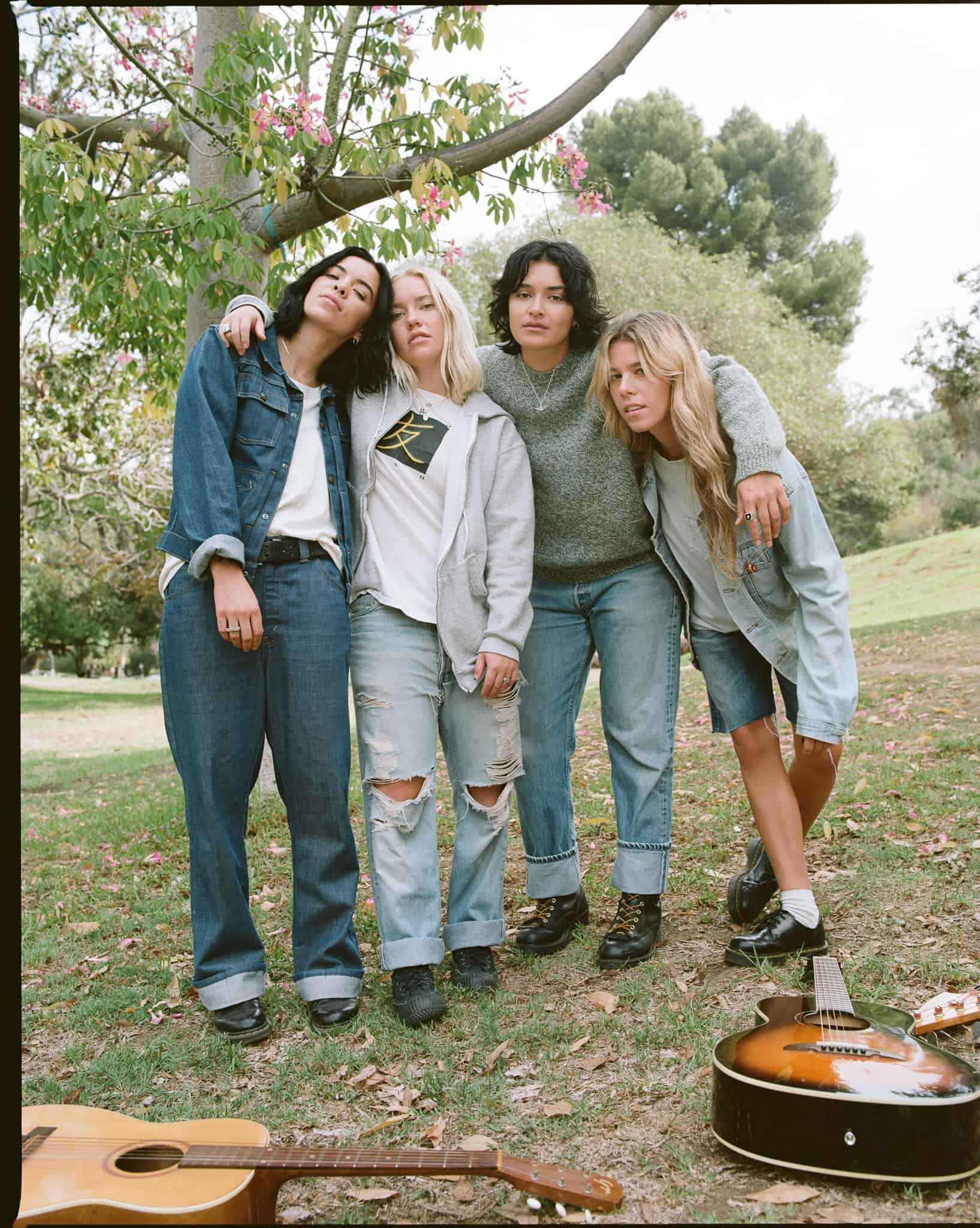
The following interview has been lightly edited for length and clarity.
How are y’all doing?
Cristal Ramirez (singer/guitarist): Doing good, actually. We’re getting back into the swing of touring. Touring’s always real hard on your mental and physical health, but it’s really cool to be here. Playing this sized venue in Manchester is surreal.
Alisa Ramirez (drummer): From COVID and not being able to tour for Under My Influence, we’re really grateful to be here. Even though we’re tired and going on a month of being away from home, we’re really proud of ourselves and getting to put on a show tonight.
This show was initially announced to be at the Gorilla, so I’m guessing this was an upgrade?
McKenna Petty (bass): Yeah, it sold out so fast that we upgraded, which is so crazy to see that jump all at once.
Alisa: And now we’re about to sell this venue out! We’re like 50 tickets away from selling out.
Katie Henderson (lead guitarist): We pulled up earlier looking out at this queue near the venue and were like “that CAN’T be the line for us!” As we got closer, it hit us that “no, THAT’S THE LINE!” And we he had to go another block around, too, so we got a cool view of everyone.
How have you found the energy on these shows?
Katie: It’s been amazing!
McKenna: Exceeded all expectations.
Cristal: Coming off The Vamps tour, it’s been really cool. That perhaps wasn’t the most obvious choice of tour, yet it’s been amazing to see how many more queer fans have been coming from their shows. We’ve had so many people come up to us and be like “I saw you guys on the Vamps tour and it made me realise I was bi!” or “it made me realise I was gay!” or “made me realise I was queer!” That’s so fucking cool!
Alisa: Which is why we like doing the not-super-obvious tours where we’re get put in front of more mainstream crowds to do our thing. You’re gonna have people who are a bit confused, but you’re also gonna get people for whom it’ll change their lives. We also noticed that when we went out with 5 Seconds of Summer in the States, so it’s been really cool.
The inlay for I’ve Loved You for So Long had a message about how the record was based on you all working through repressed trauma from your upbringing as queer people in Utah. Did the writing come through more naturally on this record compared to your prior works as a result of addressing that baggage head-on?
Cristal: In some ways. To be honest, the record itself was that work happening in real time. When we started writing the record, there wasn’t an intention to write a record. We were in COVID isolation, we’d just put out our second album which we’d invested so much time in and were so excited for, it felt like it was gonna be a big… for lack of a better word, commercial or pop moment for our band. Under My Influence was more about songwriting and “Daydream” came from that, which is our most popular song today. We were really intentional about writing fucking BIG songs, universal songs.
So, when the wind got taken out of our sails on that, it was kinda discouraging. It made us go back to the drawing board and ask “why do we make art? Why do we make music?” We started making music when we were 10 years old cos we loved it. We were friends who related over making art together. So Long came from a place of desperation, in the beginning. Desperate to feel like we still were gonna have a career, like many musicians were. Desperate to feel connected to our fans. Desperate to feel anything…
McKenna: Desperate to get outta the house.
Alisa: I think there was a lot of personal growth that happened for people during the pandemic, from being forced to be alone with your thoughts for so long. As Cristal was mentioning, that downtime reframed why we make music and this record became about regrouping our purpose in making music. To connect with other people, be as authentic as we can through our artistic expression, and remove some of the habits we picked up along the way.
We signed a record deal when we were super young; I was 19, they were 20. There’s always a battle between “being an artist” and “being an artist who has to sell their art” with people constantly pushing you to make it commercial and commodify it. Going into this record, we simply wanted to make shit that felt really good to us and push things to be more experimental than before, not make any decisions based off a need to be commercial or a need to perform. It’s funny that the record came out real catchy; I don’t think we know how to do anything else! *laughs*
Cristal: That’s just how we song-write! So, it was more natural, in a way, but it was also scarier for us because it was a way more vulnerable piece of art than we’d done up to now. I think we talked about vulnerability and authenticity before, which we were being…
Katie: As much as we could at the time.
Cristal: …but that couldn’t hold a candle to the third record of the vulnerability we were gonna touch on here.
Alisa: It felt like before there was these “no no” areas we didn’t want to talk about, these skeletons in the closet we didn’t want to dredge up. And on this record we decided we’re finally gonna talk about them.
And it turns out that, in doing so, you’ve put out your biggest album yet in terms of reception!
All: EXACTLY!
Cristal: It’s funny how that works. I heard this quote the other day I really liked: “the goal has to match the sacrifice in anything you do.” To be vulnerable and open yourself up is the sacrifice, because it’s really scary to put yourself out there for better or worse. But the reward of that vulnerability is equally as strong. Artists are always saying “this is our most vulnerable record, it was the one I was most heartbroken when I made, and it changed my career/life.” I feel like we’ve done that with this record. It feels different, the fan interactions feel different, the shows feel different. It just feels like it means so much more to people.
What have been some of the most validating reactions to the record that you’ve received?
McKenna: Honestly, this meet-and-greet we just did. Everyone asks such incredible questions, but there was this one girl at the end who was with her mom and she just said “thank you so much,” asked for a hug, and started crying. It’s such an honour when you have this kind of connection with somebody, knowing that you helped them get through a tough time in the same way that listening to music did so for us.
Katie: It’s cool to see which songs really resonate with the fans. In Birmingham, we were playing “Stop Feeling” and I saw this girl with her friend just crying her eyes out to that song. You could tell it was such an intimate moment for her to hear that song live, the words connected so heavily. I don’t think she thought any of us could see her from the stage, but to be able to witness that real emotion caused by one of our songs was really, really special.
I love being in crowds like that. I was at boygenius the other week and it was a sea of fellows NBs, queers, and girls just letting themselves be free to feel the music in whatever emotional response it takes without fear. That’s so cool.
Cristal: I love being queer and I love that we’re queer artists. The community that we get to be a part of and the fan culture that we get to experience, they really are the best fans in the world because it means so much more to those people who have been through so much. We know how it feels to be from a place that tells you your identity for your entire life is wrong. But when you cut into that power and find artists who talk like you, feel like you, look like you, and are larger than life to you? There’s something otherworldly about that, and we get to experience that energetic exchange every single night. We’re so lucky for that.
If you had told me when I was 10 years old that being queer would be one of my favourite things about my life, I would have never believed you. It’s so healing for us as queer people to get on-stage and have people so deeply resonate with what we do, and heal their wounds like their response helps heal our wounds. It’s just this really beautiful exchange.
Alisa: We’re obviously so indebted to the people that came before like Tegan & Sara, Melissa Etheredge, and artists who were so Out with their identities at a time where it was not safe or cool to do that. But we’re grateful to be living in a time where we get to be part of a movement of queer artists who are celebrated rather than reprimanded or attacked.
What’s everybody been listening to?
Alisa: I’ve been listening to so much Ethel Cain. I love her to death! We got to see her live a week ago cos we played Pukkelpop together. She’s so sick!
Cristal: The command with fans that she has, it honestly reminds me a lot of how our fans are with us. There’s that kind of queer artist who means so much to so many people. She’s so incredible; top five favourite artist of the past year, hands down!
A friend of mine, Natalie Lew, has a project called Sea Lemon that’s so good. She’s from Seattle and makes kinda grunge-y rock. She just put out a new EP, Stop at Nothing, and I’ve been listening to it on the road non-stop.
McKenna: I feel like I’ve been listening to a lot of music that I’ve listened to in the past on-tour. I always go back to the old tried and true; a lot of Big Thief and Widowspeak.
Katie: We played a festival in Romania with this artist called Biig Piig that Kenna knew about and I had never heard of. She took to me to see them play this amazing show and I’ve now been listening to her music a bunch.

